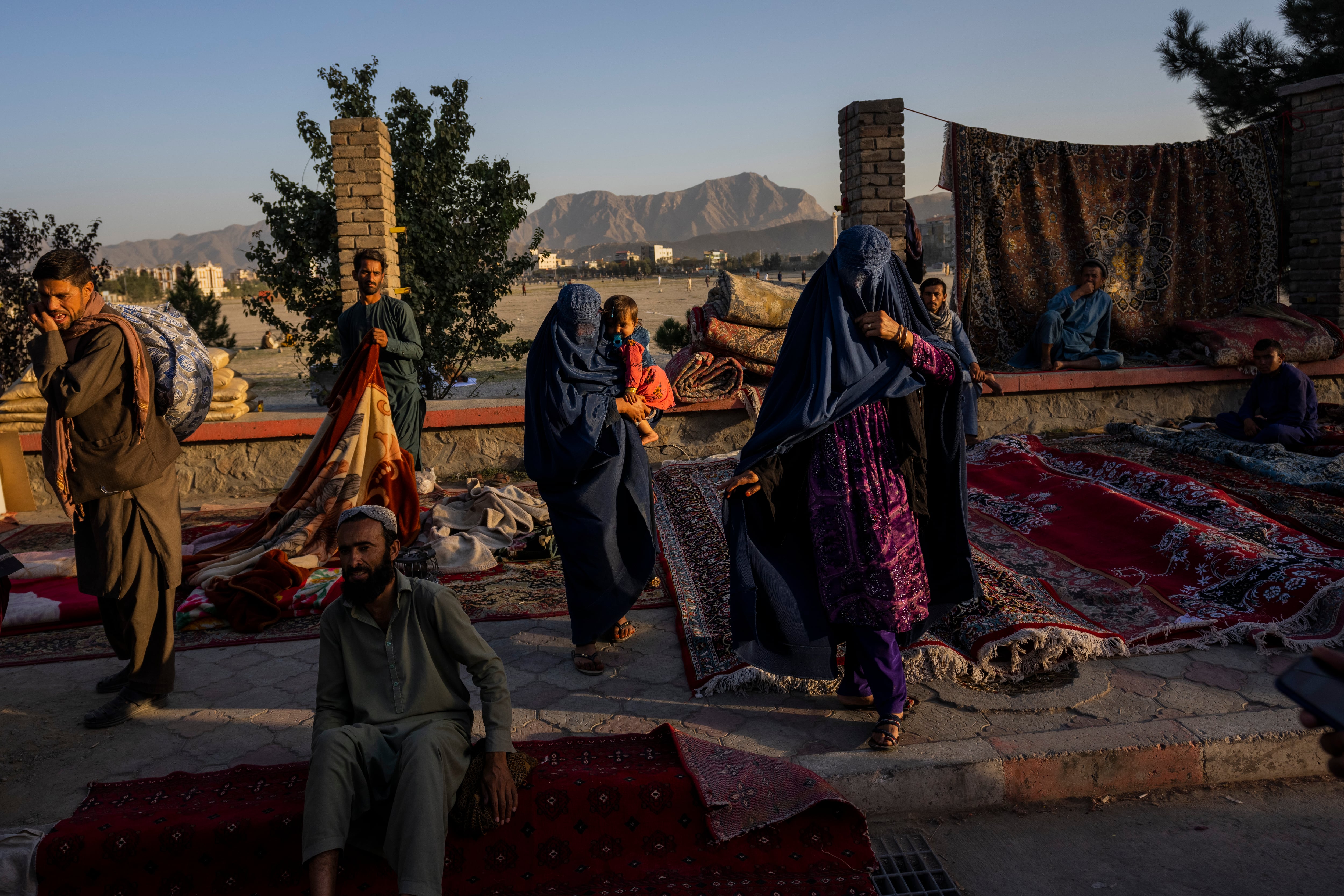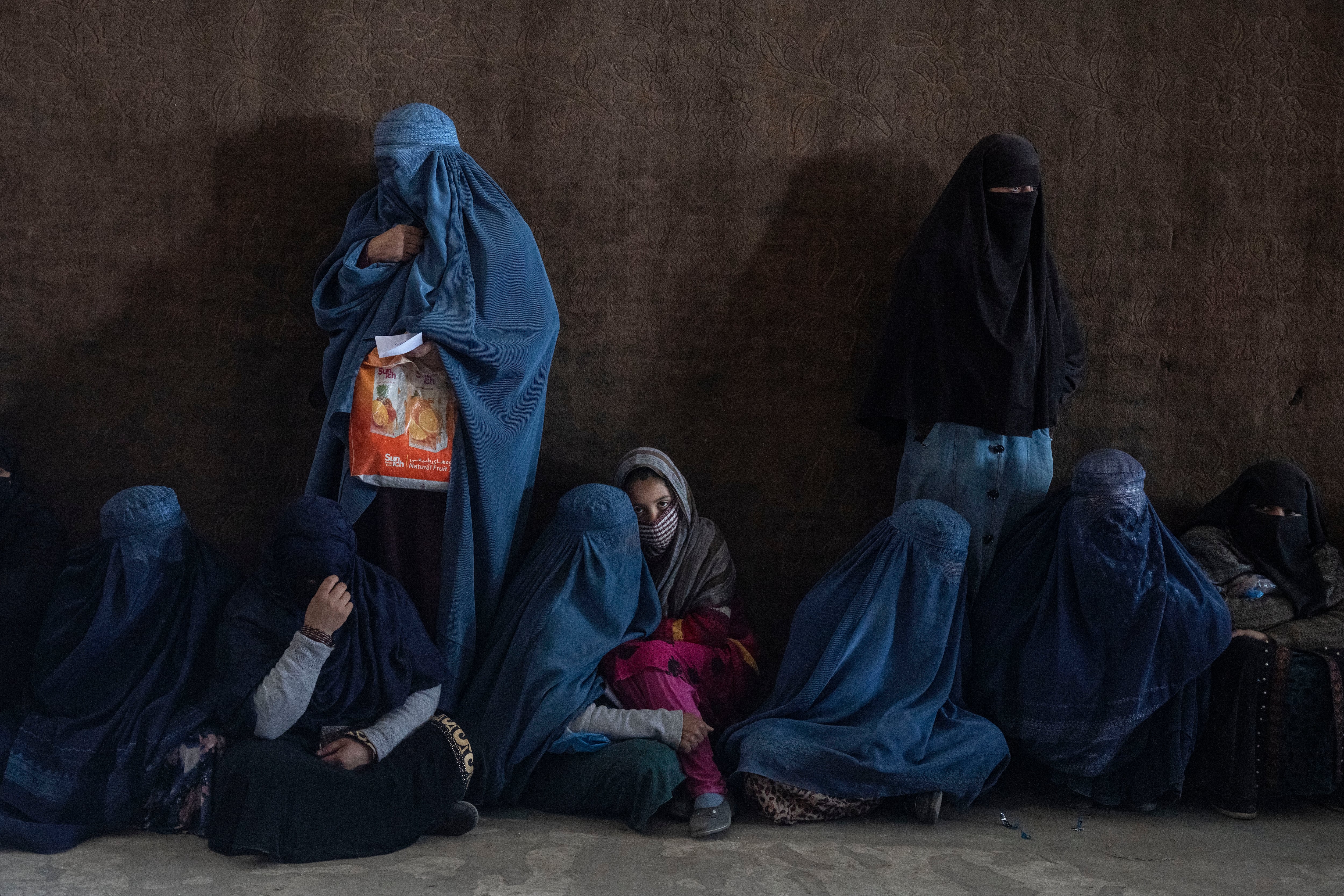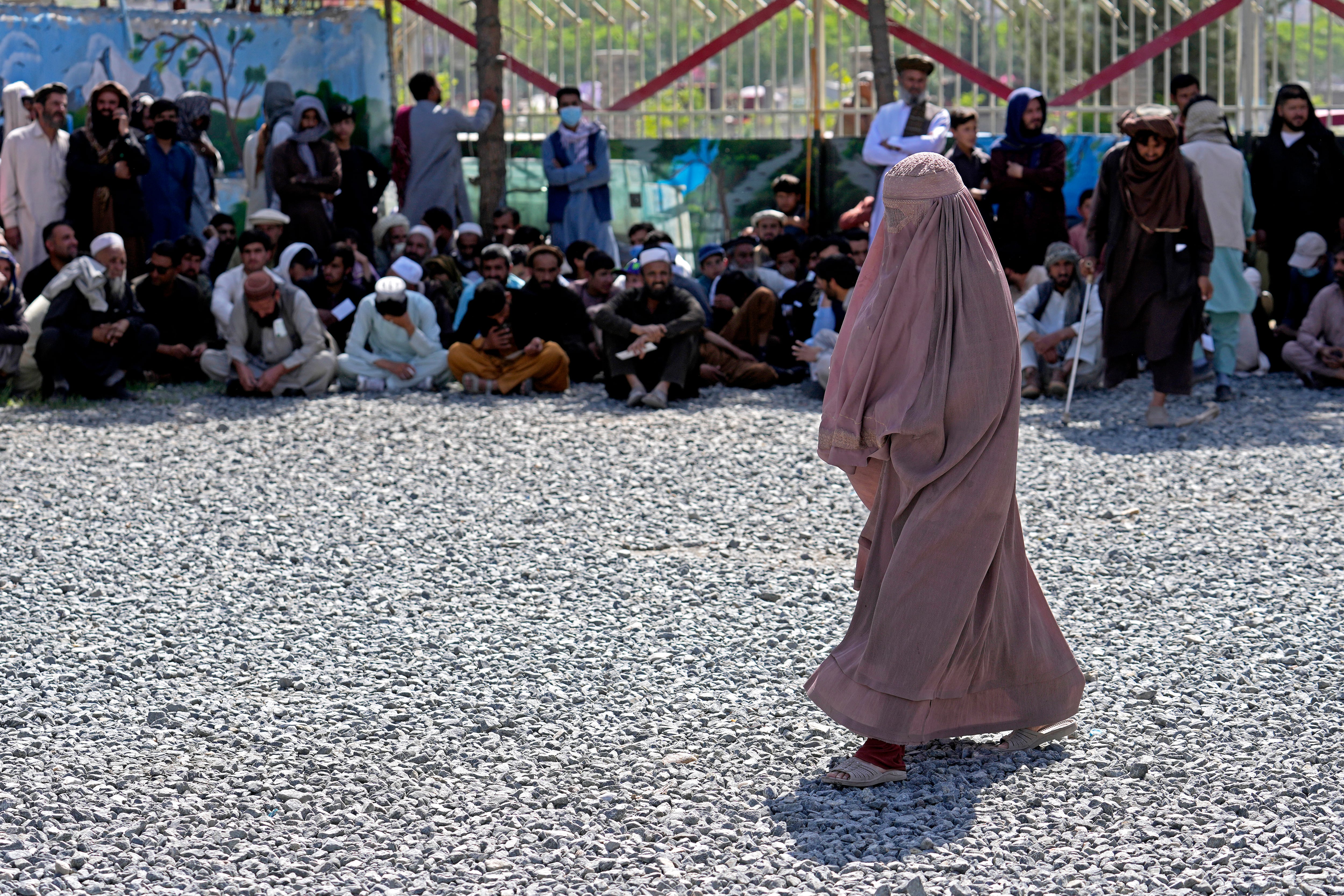Narges Hussaini and her family traveled to Herat, Afghanistan, on August 13, 2021. As a former female employee with the Ministry of the Interior, she knew she could face retribution when her country fell to the Taliban. Her plan was to take her family with a group of smugglers across the border into Iran. However, a friend instead told her that they would have better luck escaping on the planes flying out of Hamid Karzai International Airport.
They were wrong.
Now, Hussaini is one of the thousands of allies, particularly women, left behind in dangerous conditions when coalition forces withdrew from Afghanistan a year ago.
“Life here is hell,” Hussaini told Military Times.

She and her family now lead impoverished lives Kabul, in a house with 24 people. To make ends meet, she practices the art of bead weaving, which her oldest son sells in the local market.
In order to share her story, she had to travel to her sister’s house for fear that the Taliban might catch wind of her identity by way of overhearing a conversation about her prior work or monitoring her daily activities. She lives in constant fear that people she knows will sell her out for money or favor with the new regime.
And it’s her entire family she must now worry about. Hussaini’s brother was a member of the Afghan National Army, and her father-in-law worked for the National Department of Security. Anticipating making it into Iran as refugees, they sold their home and everything they owned the week before the withdrawal.
Hussaini nearly made it out of the airport, but in all the chaos, her youngest son went missing on the tarmac. Despite being close to boarding, the rest of her family decided to stay and look for him, no matter the cost.
“I was almost on the other side of the airport, where the coalition forces controlled the airport,” she said. “We lost him in the crowd. That night, we couldn’t find him. Luckily another family had found him and taken care of him.”
When they reunited with him, he was in a state of shock and unfit to travel.
“The family contacted us, and we were able to find him, but he was terrified,” Hussaini said. “We had to take him to the hospital. And because of the chaotic situation there, we did not make more attempts to go to the airport.”

Though Hussaini has been given Priority 1 status for a Special Immigrant Visa (SIV) to the United States, there has been very little movement on her case. Though she has one, Hussaini is currently working to get passports for all her sons, so that they might escape to Pakistan or Iran while they wait for her SIV to come through.
“I always look over my shoulder,” she said. “I’m always careful so that the Taliban doesn’t recognize me because I worked for the government.”
Through Operation Allies Welcome, the U.S. has brought in roughly 80,000 Afghans, but there are still estimated to be more than 74,274 applicants in the pipeline, senior administration officials said in a July 18, 2022 briefing.
And it’s worse for Priority 2 applicants, who are not eligible for Special Immigrant Visas because they either lacked “qualifying employment” or time serving the U.S.
Nursin Kazemi was a journalist for the online outlet TOLONews before the withdrawal on Aug. 15. She is stuck in Kabul and the limbo of the American visa processes as a Priority 2 applicant. Having worked as a female newsperson, she could face corporal punishment if the Taliban discover her true identity.
Both Hussaini and Kazemi have been relying on aid from U.S. veterans who help both financially and through connections on the ground to provide food and housing.
“My [veteran sponsor] was able to provide a safe house for a couple months,” Kazemi said. “That was really good up until about three weeks ago.”
Kazemi has been living in a house, which hosts 13 people in each room. She can’t work for fear of being identified. Her house has been raided twice, she said. Luckily she was not home either time.
“I worry that sometimes I might have to live on the streets, and that’s not safe,” she said. “So even if I go to Pakistan or anywhere else, we still need money, and that’s hard for somebody who doesn’t have a job. My only hope is to get evacuated from here.”
**Aliases have been used to protect the identities of allies still in Afghanistan.
Sarah Sicard is a Senior Editor with Military Times. She previously served as the Digitial Editor of Military Times and the Army Times Editor. Other work can be found at National Defense Magazine, Task & Purpose, and Defense News.





